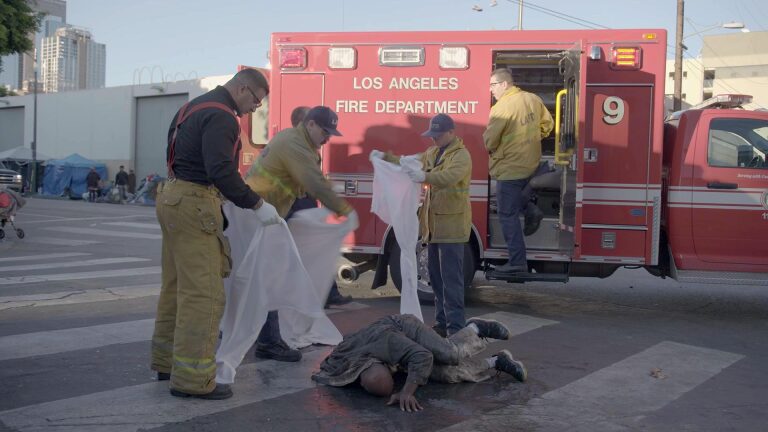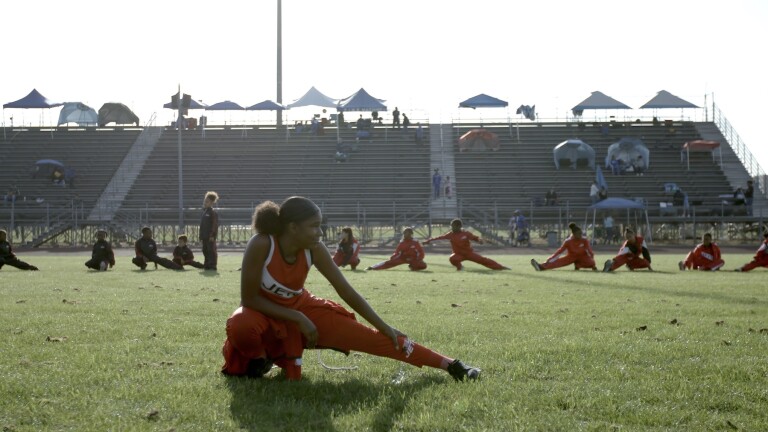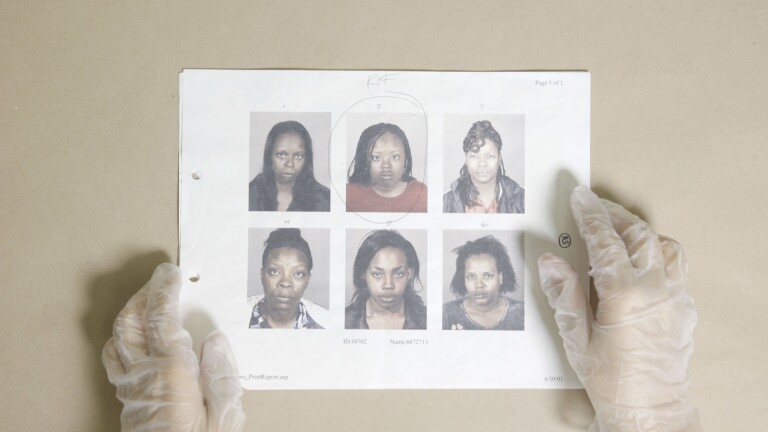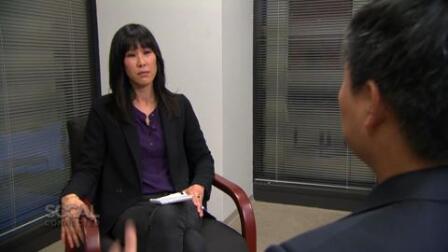
Compton: Corruption, Incompetence, or Just Business As Usual?
This is a story that many people in Compton would probably prefer you don't see. It's about how the Compton city government works -- or doesn't work.
"SoCal Connected" spent three months looking at Compton, a city that has been plagued by street politics and accusations of scandal. We found questionable expenditures, big loans that haven't been paid back, and council members making up to $1,500 an hour. Reporter Laurel Erickson has our exclusive investigation.
TRANSCRIPT:
Laurel Erickson: No one says the folks in Compton live on Easy Street. It's one of the poorest places in L.A. County. They've even talked about bankruptcy. But it may also be a place for easy money.
Lucrative contracts, unpaid loans, money for meetings that last just minutes. It's all part of our three-month investigation into Compton City Hall.
Erickson [to Council Member Willie O. Jones]: You're getting $7,800 a year and the city is just 10 square miles.
Erickson [to Council Member Lillie Dodson]: How much time do you spend on those commissions?
Erickson [to City Manager Harold Duffey]: What happened? Did he get his loan forgiven?
After reviewing hundreds of Compton City Council meetings and minutes going back to 2009, we had a lot of questions, and it was difficult to get answers, as you'll soon see.
Erickson [on the phone]: I'm trying to find out how much money the city council members make. How much do they get for a meeting, do you know that? The budget says seventy-seven nine nine six. I think it's for the council members. Are you saying that's for the mayor?
We eventually determined that each council member makes about $55,000 for that part-time position. We also learned most of that money – 73 percent – comes from sitting on commissions that may meet as little as three minutes.
Take January 8th, 2013: just before the regular city council meeting, the four commissions convened: the Housing Commission, Public Finance, Gaming Commission, and Urban Community Development Commission, or UCDC. At 5:25, the Housing Commission starts. 5:34, it's the Public Finance. 5:46, Gaming Commission. And at 5:51, the Urban Community Development Commission starts.
Our research shows in 2012 the city council members earned $39,000 for serving on the four commissions, which met for a total of 26 hours. That shakes out to $1,500 per hour. They even got paid in August, even though there aren't any meetings held that month. None of this surprises Compton resident Joyce Kelly.
Erickson: Kelly, how long do these meetings take? I'm assuming you go to them?
Kelly: Oh, I go to them. They are all at the same time.
Erickson: How long do they take?
Kelly: Oh, between three and 10 minutes. No longer than 10 minutes.
Erickson: Joyce has missed just four city council meetings in nine years.
Erickson [to Kelly]: Do they do anything?
Kelly: Well, they listen to the audience comments, and then they may comment on that.
Erickson: And then they decide something?
Kelly [laughs]: There's nothing to decide!
Erickson: And when they aren't at meetings, they may be doing lots of driving, since the council gets a pricey car allowance.
Erickson [to Kelly]: We've also found the city council members get a $7,800 a year car allowance, as does the city attorney, the city clerk, the treasurer, which is equivalent of driving about 1,000 miles a month for the city. What do you think?
Kelly: There are only 10.5 miles in the City of Compton. I don't know why anyone needs a car working for the city to drive.
Bob Stern/President, Center for Governmental Studies: I think these auto allowances are just so out of date. This is a city of 10 square miles. How far can they go at $600 a month?
Erickson: Bob Stern is the former president of the Center for Governmental Studies. We asked him about the city council payouts.
Stern: They shouldn't be hiding behind commissions that only meet for a minute or two. They should just say, "Look, we want to be paid $55,000 or so."
Erickson: We went to Compton City Hall last week to ask council members about their time and money.
Erickson [to Compton Mayor Eric Perrodin]: People are making 73 percent of their salary sitting on commissions. Why is that, when the city is in such a financial situation, and other major cities don't do that.
Perrodin: The majority of the council, when I first got elected, one of my goals was to get rid of those boards and commissions, but I didn't have the votes or the political support.
Erickson [to council member Dr. Willie Jones]: It's a lot of money to be sitting there.
Jones: But all the time is not sitting up here. You have to be prepared to deal with the issues that come before you.
Erickson [to Council Member Lillie Dodson]: What commissions are you on?
Dodson: Um, all of them.
Erickson: Do you have a favorite?
Dodson: A favorite? No. I'm just serving on the ones that's on the books. One is CRA -- it was public finance. Um, you caught me off guard.
Erickson [to Perrodin]: Does the city council meet in August?
Perrodin: No.
Erickson: And yet our producer found that you were being paid in August.
Perrodin: Probably so.
Erickson: Why so?
Perrodin: Tradition.
Erickson [to Jones]: So your car allowance, you are getting $7,800 a year, and the city is 10 square miles. Do you really need all that?
Jones: We don't just stay in the city. We have to go to the county and, you know, I just don't stay in the city.
Erickson: We wondered if city council members had spent some of the time reviewing some of the six- and seven- figure contracts we discovered.
Take this one: since 2006, Mark Woods Consultants has been paid big money to record and broadcast the city council meetings and film some community events. He gets up to $5,000 a week. In comparison, nearby Huntington Park pays only $20,000 a year for the same services.
Stern: I bet a lot of people would love to have that contract, even $5,000 a month or $5,000 a year. If they put it out to bid, I'm sure they would get a much, much lower bid on it.
Erickson: Nope. The Mark Woods 2010 bid was the highest, and, still, he got the contract. And just last night, that Mark Woods contract was extended.
We also noticed money meant in part to build this senior center was redirected to pay for a feasibility study about bringing back the Compton Police Department. Nearly $2 million was spent on the study, including $1.3 million for the purchase of police radios -- radios for a department that doesn't exist.
Perrodin [to Erickson]: I don't really know why radios were purchased anyway. That's the last thing you would buy if you wanted to start a police department.
Erickson: Four years later, the senior center is finally being built with the money that was left over.
Kelly: The promise to the taxpayers was to build this senior center. Do you know how many seniors have died since this was supposed to be completed or since this started? And it's unreal!
Erickson: But what really puzzled us was this small note in a hundred-page financial document. It appears to say developer Danny Bakewell owed Compton $3.1 million, but that debt was forgiven and the city expected to receive just $327,000. What happened? It was all part of a "Mutual Release of Claims and Settlement Agreement" between Compton and Bakewell.
Bakewell is prominent in the African-American civil rights community, and over the years, he's also received millions of dollars in contracts and loans from Compton for redevelopment projects. He is also a major contributor to Compton city council members, having given thousands of dollars to their campaigns. As for that agreement dealing with Bakewell's debts, we tried for two months to get it.
Erickson [on the phone]: Can you tell me what the name of the document is that I would look for? The city clerk says somebody else has it, and you say the city clerk has it. I'm just trying to understand, did he pay back that loan? But where do I get these documents? That's the whole thing, it's so hard.
Stern: This contract was for $3 million. So this something that should be at the top of the radar for everybody. The contract should be available. People just understand what's going on here.
Erickson [on the phone]: Wait a second. This is getting confusing.
At one point we were told by a city employee the contract was lost.
Stern: Maybe they can't find the records, but somebody was involved with it. The city attorney, the city treasurer, city council -- somebody should be able to tell you what this was all about.
Erickson: We tried last week at City Hall.
Erickson [to Jones]: But I'm trying to find out if this loan was forgiven or not.
Jones: I could not tell you the details of the loan.
Erickson [to Perrodin]: We've been trying to get somebody to explain this to us. Can you explain it?
Perrodin: I would have to refer you to the city attorney.
Erickson: We also tried the head of the redevelopment agency Dr. Kofi Boakye. It was his agency that agreed to the plan.
Boakye: Why don't you read what is there and then draw a conclusion from it, because if it's there, you should be able to read it.
Erickson: Next, the city clerk, Alita Godwin.
Erickson: What is going on with Compton? I don't understand it.
Godwin: Well, as it relates to this, this is not in my field as the clerk. So anything that relates to this you'd probably have to get an answer from the city manager.
Duffey: Well, this is a pretty big deal.
Erickson: And we did. Harold Duffey is city manager. And after our appearance at City Hall, he provided the document.
This is the settlement agreement from 2006. In it, Compton says Bakewell's company owed the city money, citing outstanding balances on the "initial purchase price" of a land deal and on a separate "development loan." It also says Bakewell used the development loan money to pay back real estate taxes and renovations.
Erickson: The city made concessions. It agreed to wipe away liens and clean the titles on Bakewell's properties. It also agreed to environmental cleanup demands. And in exchange, Bakewell agreed to pay $3.5 million to settle his debts over 35 years.
City Manager Harold Duffey said he didn't even know about the deal until we brought it up. He told us Bakewell hasn't made any payments on the $3.5 million debt since it was done seven years ago.
Erickson: Danny Bakewell wasn't available for comment, but his attorney, the man who wrote this agreement, says Bakewell hasn't paid back the $3.5 million because the City of Compton hasn't completed the paperwork to close the deal. He says he hasn't even heard from Compton.
Stern: The overall question is, "Who's watching, who is paying attention to what is going on here?" With newspapers being cut back and TV stations not that interested, the officials think they can get away with this.
Erickson: Well maybe. Bur there's an election in Compton in two weeks, with several seats up for grabs. Three-term mayor Eric Perrodin hopes he'll get reelected based on his motto of the city, "Birthing a New Compton." But that slogan may be falling flat, at least for this resident.
Unidentified man: If this was the new birth that they was talking about, oh man! We need an abortion right now!























